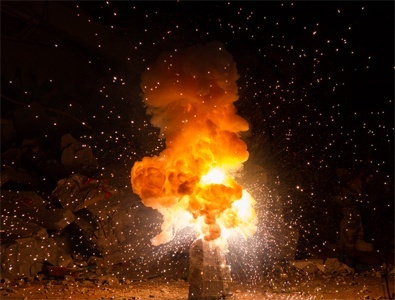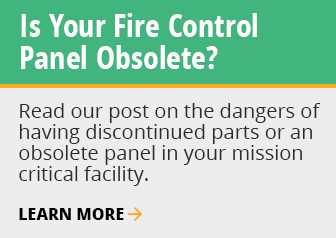Having a fire system fail to detect a fire can be extremely costly and potentially detrimental to human safety. We know how important it is to find the cause of a failure before the devastating consequences have a chance to take their toll. Watch the video below for a brief explanation of some of the common detection failure causes and different scenarios to be aware of.
Video Transcript
Lee: "We don't like to talk about this much, but we're gonna try and tackle this topic. What if your system failed to detect a fire? That's a big deal. You spent all this money to put a system in, trusted a lot of people to do it and what if the system doesn't work when there is a fire and somebody gets hurt at worst. Or I have some damage that I didn't expect to have because I paid for a nice system. Let's talk about when that can happen.
This story happened this year. We had a fire alarm panel catch on fire. When a fire alarm panel catches on fire, it's not gonna detect a fire. Let me tell you what happened. There was a HVAC unit. This is a rooftop unit in this case that was installed. We ran fire alarm cables to a relay that was inside the rooftop unit to shut it down. When we had a fire alarm in the building, smoke detection would shut down the HVAC in that room. There was a circuit there and it passed close to the power feed circuit to the unit to run the power. Well guess what? We had a little short between those two wires. We back fed some voltage into the panel and caught the panel on fire. You can see where we burned up inside the panel. That panel won't detect a fire."
Audience: "With lightning, we had that happen on campus once."
Lee: "Did you? With lightning?"
Audience: "Never seen a fire alarm smoke so badly. Of course, nothing goes off when it happens."
Lee: "Lightning is a big deal. So you said campus. I'm guessing that you have your buildings networked. And so you've got wires running underground to different buildings. Anytime we take our fire alarm system circuits outside of the building, we're susceptible to lightning especially when we're running them underground."
Audience: "Fiber optics cures a lot of that, with suppressors on the actual feeds coming."
Lee: "After you get burnt so to speak a couple times. As you go different places in the country, you wouldn't think that it's a huge problem in Kentucky, although obviously it happens, but if we go to Florida, along the eastern states along the coast where they have a lot of lightning strikes, surge protection for circuits is a big issue.
What happens if we fail to detect? Some consequences: We could have delayed evacuation of the building, the fire gets larger than it needs to and results in more damage. Life safety becomes reduced, longer recovery time and delayed fire department response, if the system fails to act as fast as we expect it to.
Common Causes of Detection Failure
Some causes. Well the system could be broke. System impaired, no water flow indication. If we have a system in a building, we've got an automatic sprinkler system and the only indication of a fire is when the water flow switch activates because a sprinkler breaks, then that water flow switch is really important to let us know that there's a fire in the building.We need to make sure the water flow switch works and otherwise the fire alarm half of the system will definitely be impaired.
The fire could be located away from the detectors. Believe it or not, if you don't know, not all buildings need smoke detectors in every room. Especially commercial buildings. The fire could happen where it's away from a detector and it just took a long time to detect the fire. Or the fire could be too small to activate the detecting system. We'll talk about that in the last little case study here.
As we start to design, if I'm a building owner and I'm trying to make some decisions. I don't have an unlimited pot of money. But I do want to protect my assets and my building. I have to weigh some different options.
We think about the first cost of installation of the system versus the types of fires that I want to be able to detect in my building. What am I storing? What activities are happening there? My system could have a high resistance to false alarms. I can install detectors that will basically never a false alarm, but they won't be very accurate as to small fires and letting us know that there's a fire there. I could follow just what the building code says as a minimum requirement or maybe I wanna be more aggressive and find out about a fire faster and specify early detection for my building."
Thanks for watching this video blog on Problem 3 from our "Top 7 Fire Protection Challenges" educational seminar. The next installment in this series will cover expand on this topic of Fire Detection Failure and detail the Minimum Requirements and Designing for Performance. You can view all videos we have released in the index at the bottom of this page. If you would like to attend a seminar in person, please click the button below to register for complimentary tickets.
"Causes and Cures: Top 7 Fire Protection Challenges" Seminar Videos Index
Problem 1: How to Operate Your Fire Panel
- How to Operate Your Fire Panel: Alarm Signals
- How to Operate Your Fire Panel: Trouble and Supervisory Signals
- How to Operate Your Fire Panel: Conventional and Addressable Panels
Problem 2: Causes and Cures for Trouble Signals





